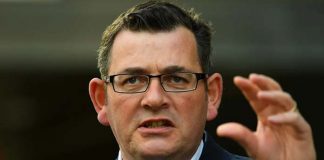Labor Premier John Brumby is expected to hold on in the Victorian election on November 27. But attention is focused on The Greens, who stand a chance of victory in four lower house seats.
The federal election saw The Greens secure a 4.5 per cent swing in Victoria and their first lower house seat. The disenchantment with Labor over federal issues like same-sex marriage and climate change is fuelling The Greens’ rise at a state level too, as well as the lack of investment in public transport and bungles with the new Myki ticketing system.
Brumby has attempted to pitch left to respond to The Greens’ rise. In July he released a climate change plan promising to have 5 per cent of the state powered by solar energy by 2020 and to shut down one-quarter of the Hazelwood coal-fired power station. In late October he announced a $2.5 million package aimed at boosting the government’s credentials in supporting same-sex couples. Brumby promised to “review” the ban on same-sex couples adopting, but has refused to budge on his opposition to same-sex marriage.
The polls make a hung parliament, with The Greens holding the balance of power, a possibility.
But The Greens have failed to pledge support for a Labor minority government, and are toying with putting the Liberals in power. Greens candidate Brian Walters, the most likely Greens candidate to win a seat, told the ABC’s Stateline program:
“The Greens have supported a Liberal government before. We did that from 1996 to 1998 in Tasmania. All options will be open and we won’t shut any option off.”
Federal leader Bob Brown has backed the Victorian Greens on this, saying, “The Greens have always, in our history, talked with all sides about issues and we’ll continue to do so”.
This reflects that many key Greens members do not want the party to present a clear left-wing alternative to Labor, but would prefer to position The Greens as a moderate balance of power party.
But relying on parliamentary horse-trading to secure minor concessions will result in The Greens accepting other elements of government policy.
Supporting a minority Liberal government, given the legacy of privatisation and cuts delivered by the Liberals under Jeff Kennett, is a recipe for disaster.
The union backing for Steve Jolly’s campaign for the Socialist Party in Richmond also shows a principled left-wing stance can be popular. Jolly’s efforts to raise class issues and mobilise grassroots community pressure deserve the support of voters in Richmond.
But his decision to run an “open ticket” and refuse to preference The Greens is a mistake.
The Greens’ rise is applying welcome pressure to Labor on its left—however inconsistent The Greens may turn out to be if elected. A vote 1 for The Greens and 2 for Labor will increase this pressure—and should also be a signal to The Greens that their supporters will not accept any deal with the Liberals.
James Supple





